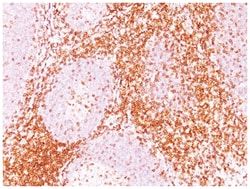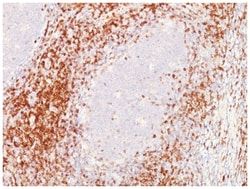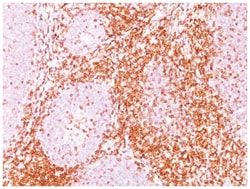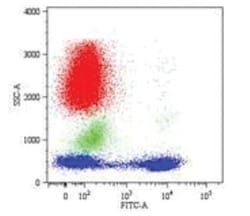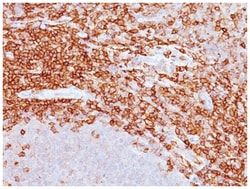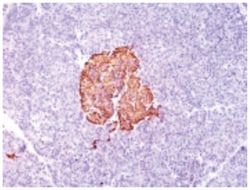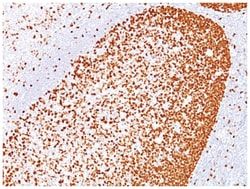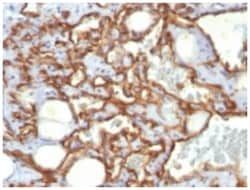CD28 Antibody (C28/77), Novus Biologicals™
Mouse Monoclonal Antibody has been used in 1 publication
Manufacturer: Fischer Scientific
The price for this product is unavailable. Please request a quote
Antigen
CD28
Dilution
Flow Cytometry 0.5-1ug/million cells, Immunocytochemistry/Immunofluorescence 0.5-1ug/ml, Immunohistochemistry-Paraffin 0.5-1.0ug/ml, Immunohistochemistry-Frozen 0.5-1.0ug/ml
Classification
Monoclonal
Form
Purified
Regulatory Status
RUO
Target Species
Human
Gene Accession No.
P10747
Gene ID (Entrez)
940
Immunogen
Recombinant human CD28 protein
Primary or Secondary
Primary
Content And Storage
Store at 4C.
Clone
C28/77
Applications
Flow Cytometry, Immunocytochemistry, Immunofluorescence, Immunohistochemistry (Paraffin), Immunohistochemistry (Frozen)
Conjugate
Unconjugated
Host Species
Mouse
Research Discipline
Adaptive Immunity, Apoptosis, Immunology
Formulation
PBS with 0.05% BSA. with 0.05% Sodium Azide
Gene Alias
CD28 antigen, CD28 antigen (Tp44), CD28 molecule, MGC138290, T-cell-specific surface glycoprotein CD28, Tp44
Gene Symbols
CD28
Isotype
IgG1 κ
Purification Method
Protein A purified
Test Specificity
Recognizes a glycoprotein of 44-88kDa, which is identified as CD28. It is the critical T-cell co-stimulatory receptor which provides to the cell the important second activation signal by binding CD80 and CD86 that are expressed by antigen presenting cells. Besides its co-stimulation role, CD28 functions in preventing T-cells from anergic hyporesponsive state or from undergoing premature apoptotic cell death. CD28 is also expressed on human fetal NK cells and some NK cell lines, whereas on murine NK cells the CD28 expression is much broader.
Description
- CD28 Monoclonal specifically detects CD28 in Human samples
- It is validated for ELISA.
